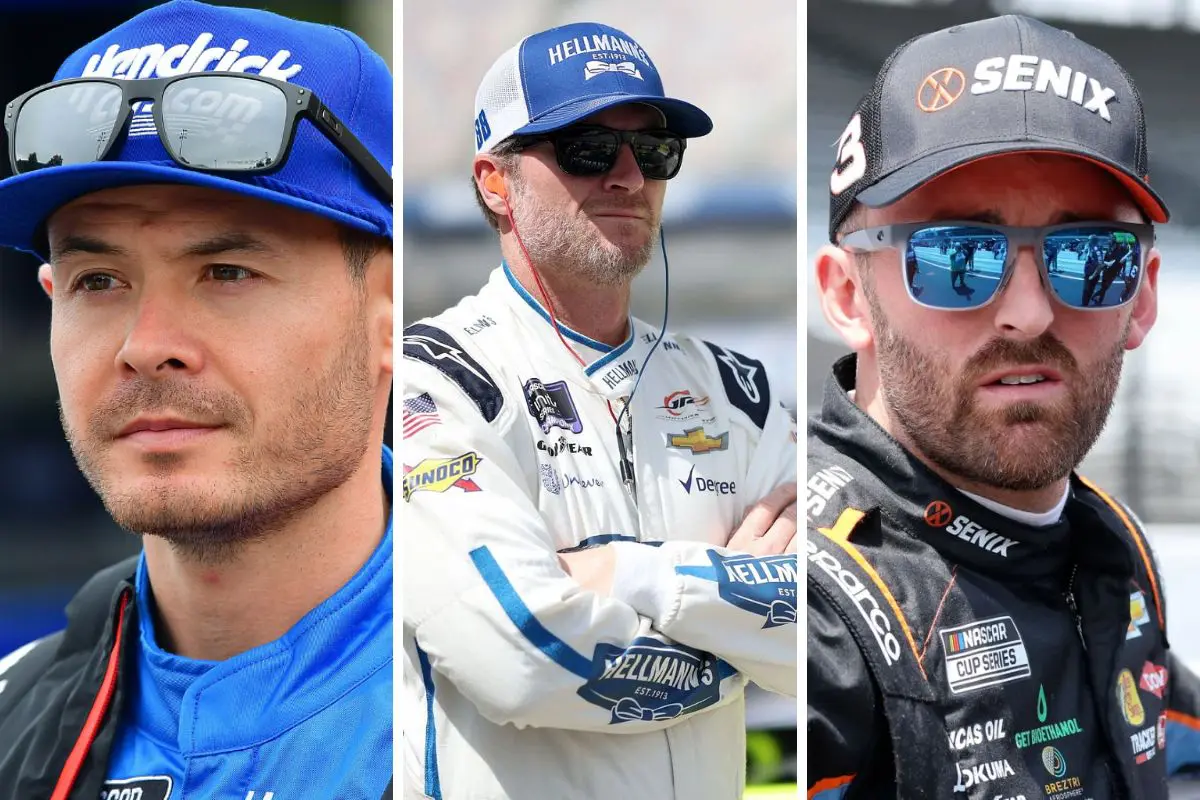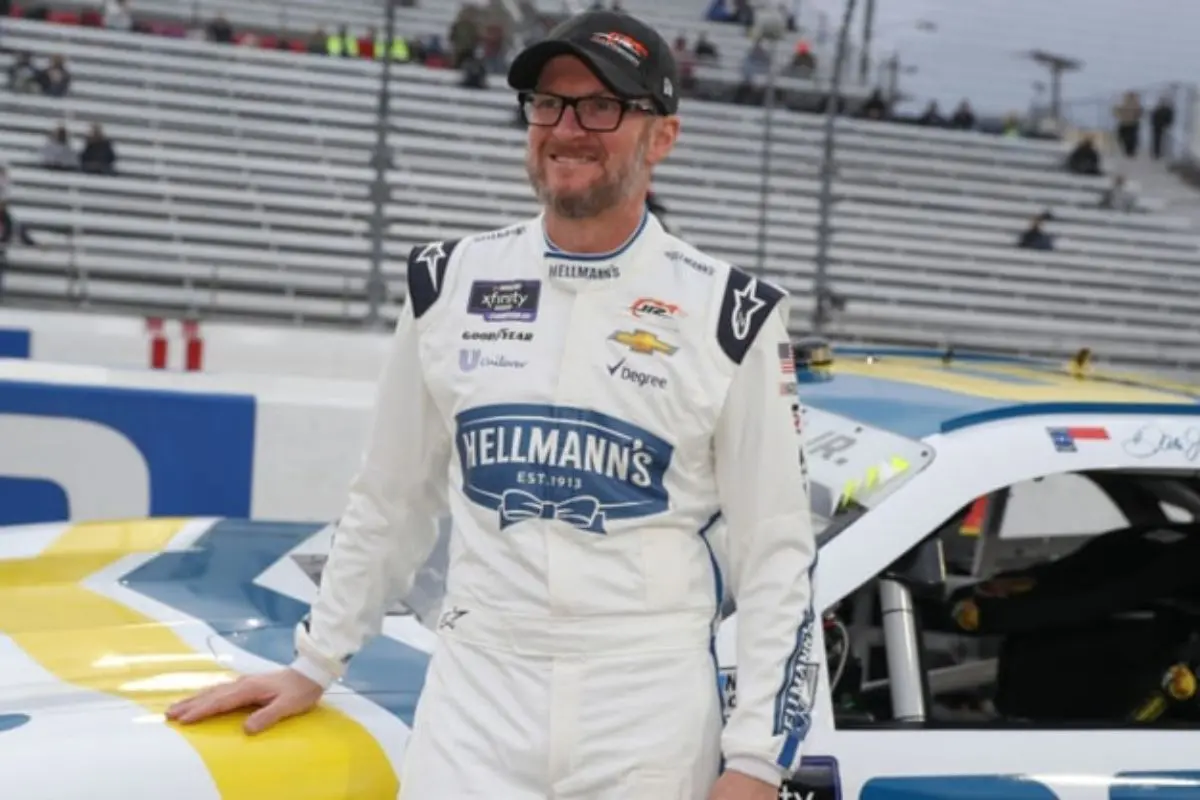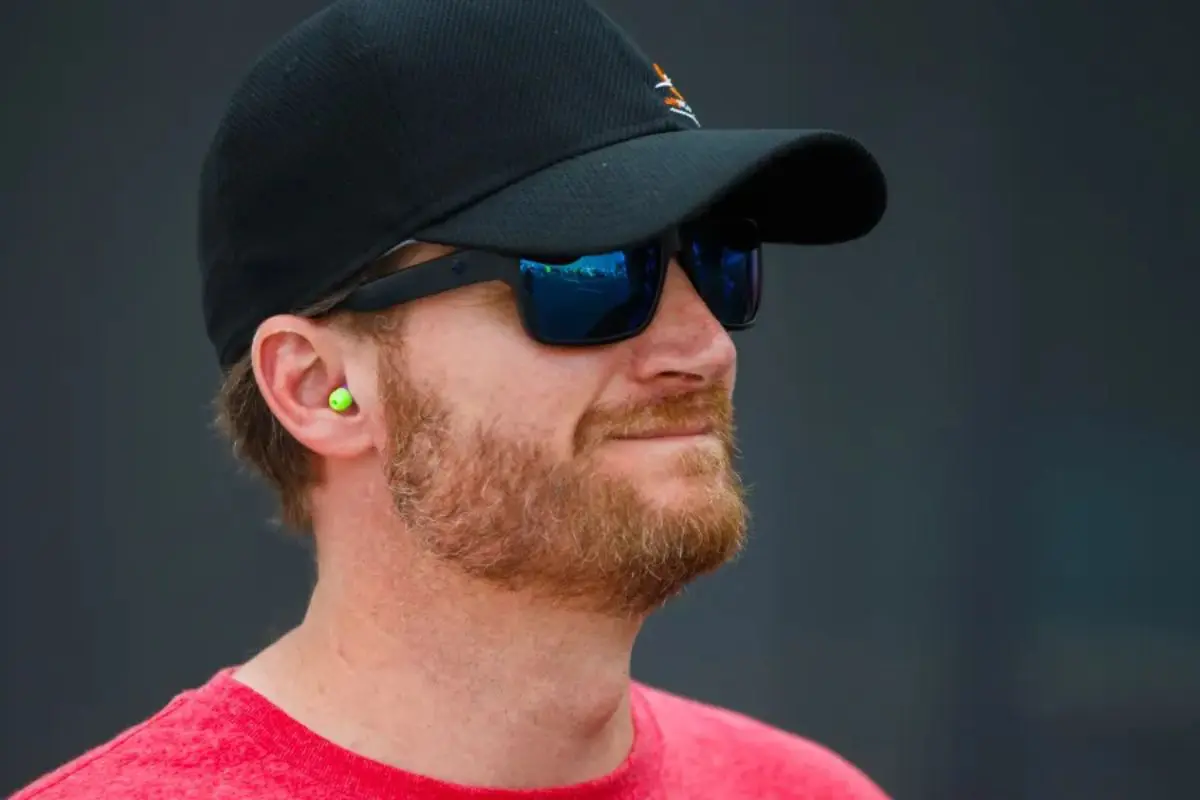Dale Jr. Pushes for Austin Dillon’s Penalty: Dale Earnhardt Jr.‘s recent stance against Kyle Larson highlights a crucial moment in NASCAR‘s enforcement of rules, particularly concerning Austin Dillon‘s actions during the Richmond Raceway incident. By advocating for accountability, Earnhardt Jr. emphasizes the existing loopholes in officiating that have historically permitted leniency in serious infractions. His long-standing opposition to waivers further complicates the discussion, suggesting a potential shift in how NASCAR addresses driver conduct. As the governing body prepares to make a decision, the implications of this situation could redefine competitive integrity within the sport. What will be the fallout from this crucial moment?
Key Highlights
- Dale Earnhardt Jr. urges NASCAR to take decisive action against Austin Dillon for aggressive driving tactics at Richmond Raceway.
- Earnhardt Jr. emphasizes the need for consistent penalties to uphold competitive integrity and driver accountability.
- The recent waiver granted to Kyle Larson raised concerns about fairness and enforcement consistency within NASCAR’s officiating process.
- Earnhardt Jr. argues that waivers undermine competition integrity and allow serious infractions to go unpunished, impacting driver safety.
- He calls for NASCAR to implement clear guidelines and consequences to prevent normalization of reckless behavior on the track.
Dale Earnhardt Jr.’s Call for NASCAR to Take Action
Dale Earnhardt Jr. has publicly urged NASCAR to implement decisive measures in response to the recent late-race incidents at Richmond Raceway, particularly involving Austin Dillon’s aggressive tactics against competitors Joey Logano and Denny Hamlin.
This call to action reflects a growing concern within the NASCAR community regarding the integrity of racing and the behavior exhibited on the track, especially during high-stakes moments.
Dillon’s actions—specifically, the intentional dumping of Logano and Hamlin—raise notable questions about the standards of conduct expected from drivers.
Earnhardt Jr. emphasizes the necessity for NASCAR to assert its authority, arguing that a lack of intervention may set a dangerous precedent for future races. The essence of competitive integrity lies in the adherence to rules and sportsmanship, which appears compromised when aggressive tactics overshadow skillful driving.
Moreover, Earnhardt’s plea highlights the need for NASCAR to establish clear guidelines and consequences for reckless behavior. By taking a firm stance against Dillon’s actions, NASCAR has the opportunity to reinforce its commitment to fair competition and maintain the sport’s reputation.
The evidence gathered from the Richmond incidents provides a foundation for NASCAR to act decisively, potentially leading to disciplinary measures that resonate throughout the series.
The Loophole in NASCAR’s Officiating Process
Recognizing the growing concerns about accountability in NASCAR’s officiating process, it becomes evident that substantial loopholes undermine the effectiveness of punitive measures. The case of Austin Dillon exemplifies this issue, as even if NASCAR opts to penalize or suspend him, the implications may be negligible for his competitive standing. With the possibility of a one-race ban, Dillon could still secure a waiver, enabling him to maintain his playoff position despite missing a points race.
This scenario demonstrates a critical flaw in NASCAR’s regulatory framework. The waiver process, intended as a safety net for unforeseen circumstances, inadvertently allows drivers to circumvent the consequences of on-track infractions. For Dillon, knowing that he could still compete in the playoffs—even after a penalty—diminishes the deterrent effect that penalties are meant to impose. Such a situation erodes the integrity of the sport and raises questions about the commitment to fair competition.
Dale Earnhardt Jr. has voiced concerns regarding these loopholes, advocating for a reevaluation of the current officiating practices. His position suggests that eliminating the waiver process might be necessary to reinforce accountability.
Dale Jr.’s Long-standing Opposition to Waivers
Concerns about NASCAR’s waiver process are not new, as many within the sport have criticized its impact on fairness and accountability. Dale Earnhardt Jr., a prominent voice in the NASCAR community, has been particularly vocal against the use of waivers, arguing that they undermine the integrity of the sport. These waivers often allow drivers who have committed serious infractions to maintain playoff eligibility, raising questions about the consistency of NASCAR’s enforcement of its rules.
The incident involving Chase Elliott serves as a prime example of this contentious issue. Despite a clear violation of Section 4.4.C, which stipulates penalties for forcing another competitor into the wall, Elliott received a waiver enabling him to compete for the championship if he won a race. This decision highlighted the dilemma NASCAR faces in balancing competition with accountability.
“clearly forcing another competitor into the wall in an abrupt and unambiguous manner.” – Section 4.4.C states
Earnhardt Jr.’s long-standing opposition stems from a belief that waivers disrupt the essence of competition, where drivers should be held accountable for their actions. As NASCAR continues to navigate these challenges, the conversation around waivers will likely intensify, emphasizing the need for consistent rule enforcement in the sport.
Dale Jr.’s Criticism of Waivers and the Richmond Incident
The recent waiver granted to Kyle Larson for missing the start of the Coca-Cola 600 has reignited discussions surrounding the waiver policy in NASCAR, particularly in the context of the controversial incident at Richmond.
Dale Earnhardt Jr., a prominent voice in the sport, has articulated his staunch opposition to the waiver system, asserting that it undermines the integrity of the competition. During the August 13 episode of the Dale Jr. Download, he stated emphatically, “There shouldn’t be any waivers. I’m sorry, there should not be waivers for nothing.”
“I told y’all I don’t; it feels like six twelve months ago, there shouldn’t be any waivers. I’m sorry, there should not be waivers for nothing.” – Jr.
This critique gains weight when juxtaposed with the events at Richmond, where a notable collision raised concerns about driver safety and the broader implications for NASCAR’s regulatory framework. Earnhardt highlighted the Richmond incident as a crucial moment, contending that it should serve as a catalyst for change.
“I think that it’s a very important moment for NASCAR. Yes, this is very important. They cannot deter this; that was too far, and I don’t want to see that again. Like Denny, I thought didn’t he hit way harder than he did? I was surprised to see him get out of the car; I thought he freakin pounded into the fence.” – jr
He expressed concern over the severity of the crash, remarking on his surprise that Denny Hamlin emerged unscathed after what appeared to be a violent impact with the wall.
Earnhardt’s comments reflect a deeper anxiety regarding the potential normalization of dangerous situations in the sport, exacerbated by the current waiver policy. He fears that granting waivers could lead to complacency around safety protocols and competitive fairness.
NASCAR’s Pending Decision and the Consequences
As debates surrounding the waiver policy continue to unfold, NASCAR now faces a considerable decision concerning Austin Dillon‘s actions during a recent race. The governing body has a wealth of evidence at its disposal, including radio communications and SMT data, which could substantiate a ruling that reflects the severity of Dillon’s conduct.
There will be no penalties from Richmond announced today. Tomorrow at the earliest.
— Bob Pockrass (@bobpockrass) August 13, 2024
Given the precedent of consistent disciplinary measures in similar situations, the decision looms large with potential implications for Dillon’s playoff eligibility.
Historically, NASCAR has shown a willingness to impose hefty fines for incidents deemed detrimental to driver safety. For instance, both Bubba Wallace and Daniel Suarez faced $50,000 fines for relatively lesser infractions involving minimal contact.
In clear contrast, Dillon’s actions were notably more egregious, arguably endangering the safety of fellow competitors. This raises the vital question: will NASCAR apply the same stringent standards that have characterized its disciplinary actions in the past?
While the expectation is for a combination of point deductions and monetary penalties, the absence of a preliminary statement suggests that the governing body is weighing the seriousness of its decision carefully.
Typically, NASCAR announces penalties on Tuesdays, but the delay indicates a thorough deliberation process is underway. As the clock ticks toward a probable verdict by Wednesday, the racing community watches closely, aware that this decision could set a vital precedent for how NASCAR navigates similar infractions in the future.
News in Brief: Dale Jr. Pushes for Austin Dillon’s Penalty
The advocacy by Dale Earnhardt Jr. for NASCAR to penalize Austin Dillon highlights a critical examination of officiating standards within the sport. By addressing inconsistencies and potential loopholes, Earnhardt Jr. seeks to improve competitive integrity and promote driver safety. The ongoing scrutiny of waivers and their implications emphasizes the necessity for a more rigorous enforcement of rules. NASCAR’s forthcoming decisions will not only impact the individuals involved but also shape the future dynamics of the racing community.
ALSO READ: Dale Earnhardt Jr.’s Xfinity Comeback: Kelley Earnhardt Raises Doubts





I remember a long time ago a group of owners and drivers tried to tell Big Bill how to run NASCAR! IT didn’t work out for them. Richard knows what I’m talking about.